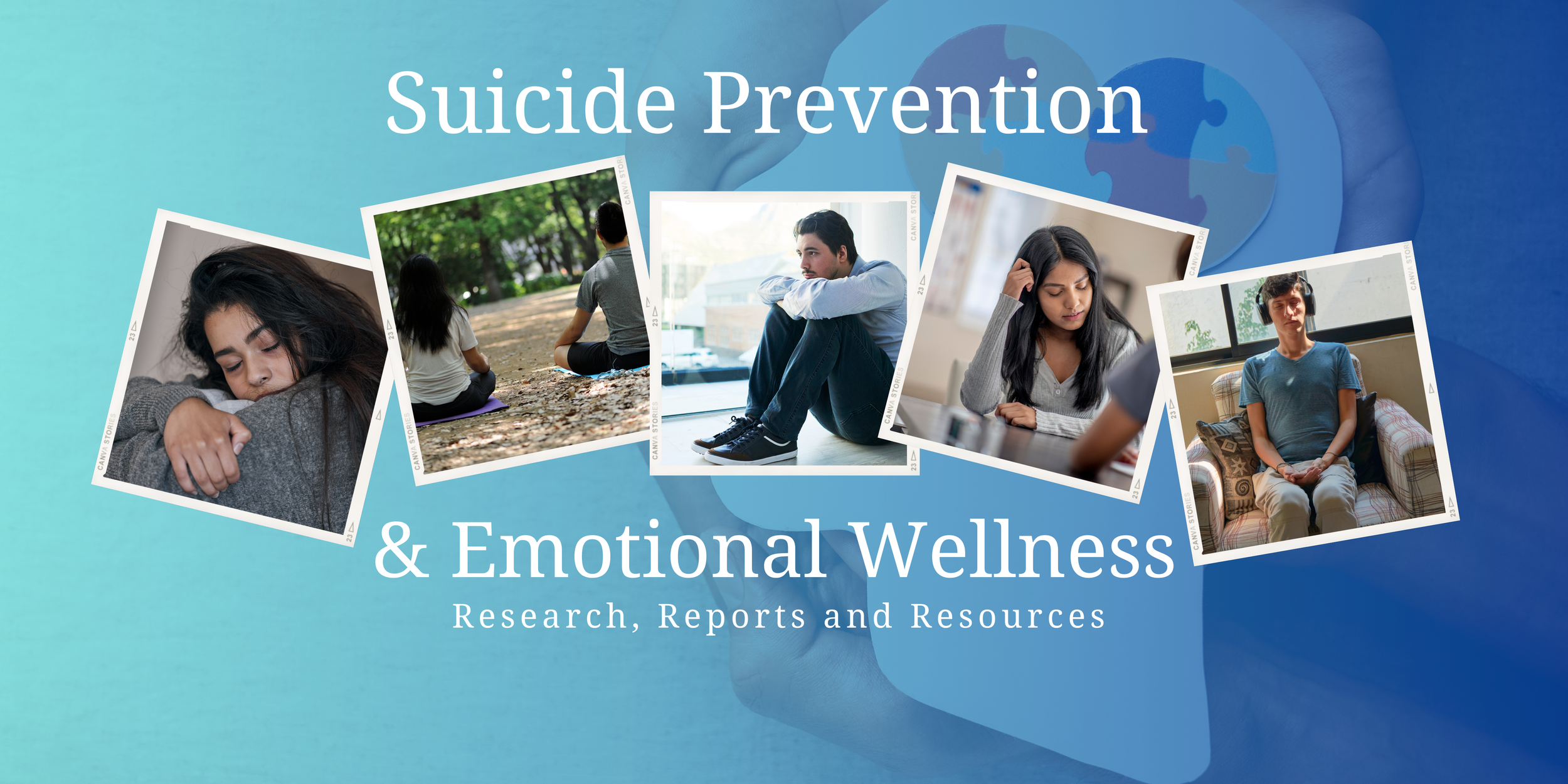Key Updates from the WA Department of Health
• 2010-2019- WA suicide rate has been higher than the national rate for more than 10 years.
• 2014-2019- Education: Among people 18 years and older, the suicide rate was highest in those with 9th to 12th grade (no diploma) and high school graduates (including equivalency).
• 2020* compared to 2019 - Overall: There was no increase in suicides.
• Race/ethnicity: There was an increase among Hispanics.
• Age group: The largest decrease was in people 65 years and older and 45-64 years of age.
• Sex: There was no increase.
• Most common means: There was a decrease in all three of the common means.
• Education: There was an increase among people with some college no degree and people with less then 9th grade.
*2020 death data are preliminary, as of 4/5/2021. 2020 suicide numbers are expected to change before the data are finalized.
Suicide Prevention in Washington
Suicide is a serious public health problem in Washington. It affects people of all ages in communities across the state.
Because suicide is one of the leading causes of early death in Washington, preventing it improves the health of Washingtonians and our communities. The Washington State Department of Health is taking many actions for suicide prevention and guides implementation of the WA State Suicide Prevention Plan (PDF).
The Department does not provide crisis intervention services. If you are thinking about suicide, you are not alone. Please call the National Suicide Prevention Lifeline at 800-273-TALK (8255). Counselors are available 24 hours a day, seven days a week
Suicide, Homicide, Undetermined Deaths to Washington Residents by Race Dash Board
Research
Loneliness in America: How the Pandemic Has Deepened an Epidemic of Loneliness and What We Can Do About It
Why Social Connection Matters Our relationships and interactions with family, friends, colleagues, and neighbors are just some of what create social connection. Our connection with others and our community is also informed by our neighborhoods, digital environments, schools, and workplaces. Social connection— the structure, function, and quality of our relationships with others—is a critical and underappreciated contributor to individual and population health, community safety, resilience, and prosperity.6,17,32-36 However, far too many Americans lack social connection in one or more ways, compromising these benefits and leading to poor health and other negative outcomes.
A web of biological, psychological, social, environmental and situational factors influences suicidal behaviors. Risk factors, including childhood trauma, substance abuse, poverty and untreated mental health problems, are common in our state. Yet many people cannot get behavioral healthcare because of provider shortages, the stigma associated with mental illness or the cost of care. Washington is a leader in developing community and policy solutions to suicide. Across the state, advocates challenge communities and policymakers to face the problem of suicide head-on. Suicide prevention coalitions provide training and advocacy. Student-led prevention clubs bring peer education to schools and colleges.
We Can All Prevent Suicide
Understanding the issues concerning suicide and mental health is an important way to take part in suicide prevention, help others in crisis, and change the conversation around suicide.
Hope Can Happen
Suicide is not inevitable for anyone. By starting the conversation, providing support, and directing help to those who need it, we can prevent suicides and save lives.
Read Stories Of Hope & Recovery
Get stories from people who have been through a crisis and found hope.
Key Pilot Program Accomplishments
• Created and launched a publicly available, agriculture-industry specific, web-based resource3
• Conducted evidence-based trainings in suicide risk recognition and referral skills for agricultural industry leaders and prevention specialists.
• Created and disseminated model marketing materials in English and Spanish (see Appendix B).
• Partnered with the Idaho Department of Health and Welfare to launch a video campaign as part of a long-term communications and marketing strategy (Agriculture Suicide Prevention Program Video4).
Key Data
Resources
Training requirements for health professionals - I need information about suicide prevention training requirements and opportunities.
Training approval for training programs - I need information about how to get my training course(s) approved for WA health professionals.
















